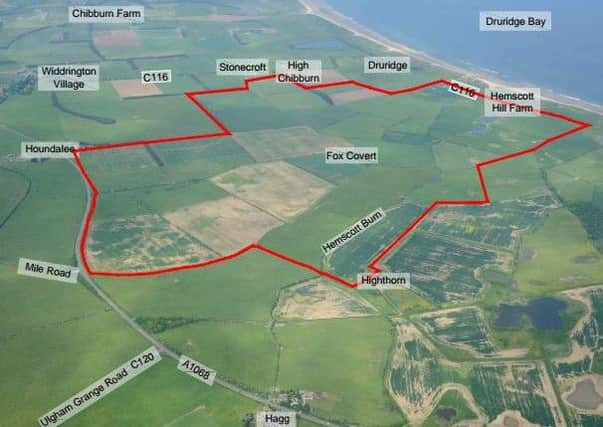Firm's legal challenge on opencast bid refusal


Following a 14-day public inquiry last year, Planning Inspector John Woolcock submitted his report in November. He recommended that the application for the 325-hectare Highthorn site near Widdrington and Druridge Bay should be approved.
But Mr Javid, Secretary of State for Housing, Communities and Local Government, disagreed with the recommendation and decided to refuse planning permission.


Advertisement
Hide AdAdvertisement
Hide AdHe said that the economic and community benefits of the proposal did not outweigh the harm to the landscape character of the area, negative impact on greenhouse gases and climate change and negative impact on tourism and recreation.
Yesterday, Banks Mining notified Mr Javid of its intention to lodge a challenge with the High Court against his decision on the grounds that there are serious errors in the legal basis on which it was made.
Gavin Styles, managing director at the company, said: “We have been advised that we have strong legal grounds for registering this challenge and will be working to get a decision from the High Court as quickly as possible.
“The Secretary of State’s misguided decision will make us ever more reliant on energy imports and more vulnerable to price rises and supply interruptions, the consequences of which will inevitably be rising prices for the consumer.


Advertisement
Hide AdAdvertisement
Hide Ad“The Planning Inspector, after a detailed and lengthy inquiry, concluded that ‘the national benefits of the proposal would clearly outweigh the likely adverse impacts’, which backs up the unanimous support we had for the Highthorn scheme from an experienced, cross-party Northumberland County Council planning committee.
“The Secretary of State has erred in reaching a different conclusion to his Planning Inspector.
“His decision to ignore expert advice and deny the opportunity for major new investment and the creation of dozens of high quality jobs in North East England, both with a recognised responsible operator but also within the wider supply chain, demonstrates he believes Russian and American jobs are more important than those of hard-working North East people.
“We have no wish to enter into a dispute with the Government, but when such a perverse decision has been made, it is not only important for ourselves that we challenge this decision, but also for all the other UK industries who would be so badly affected by it.”
Advertisement
Hide AdAdvertisement
Hide AdAccording to the company, the scheme would create at least 100 well-paid, full-time jobs on the site and invest £87million into the Northumberland economy.
The legal challenge relates to the Secretary of State ‘misdirecting himself as to the meaning of paragraph 149 of the National Planning Policy Framework’.
This relates to the environmental acceptability of mining proposals, the planning conditions and obligations that allow for the approval of such schemes and the national, local or community benefits.
Banks Mining also contends that the Secretary of State’s decision wrongly takes into account greenhouse gas emissions from the ultimate use of coal as opposed to its production.
Advertisement
Hide AdAdvertisement
Hide AdMr Styles added: “We fully recognise and accept that there needs to be a stable transition to a low carbon economy, and are already working successfully within the framework which is driving the phased reduction of coal from the electricity generating system, but there will remain a clear and recognised need for coal during this phase-out period.
“In 2017, coal demand in the UK was 14.4million tonnes, 8.7million tonnes of which was used for electricity generation and the remainder within a wide variety of important domestic foundation industries, such as the manufacture of cement and steel.
“Although this is a record low for coal generation, this demand is five times more than the UK is able to supply and nearly 20 times the planned annual production at Highthorn, and the shortfall was met by a doubling of coal imports from Russia and a quadrupling of imports from the US.”